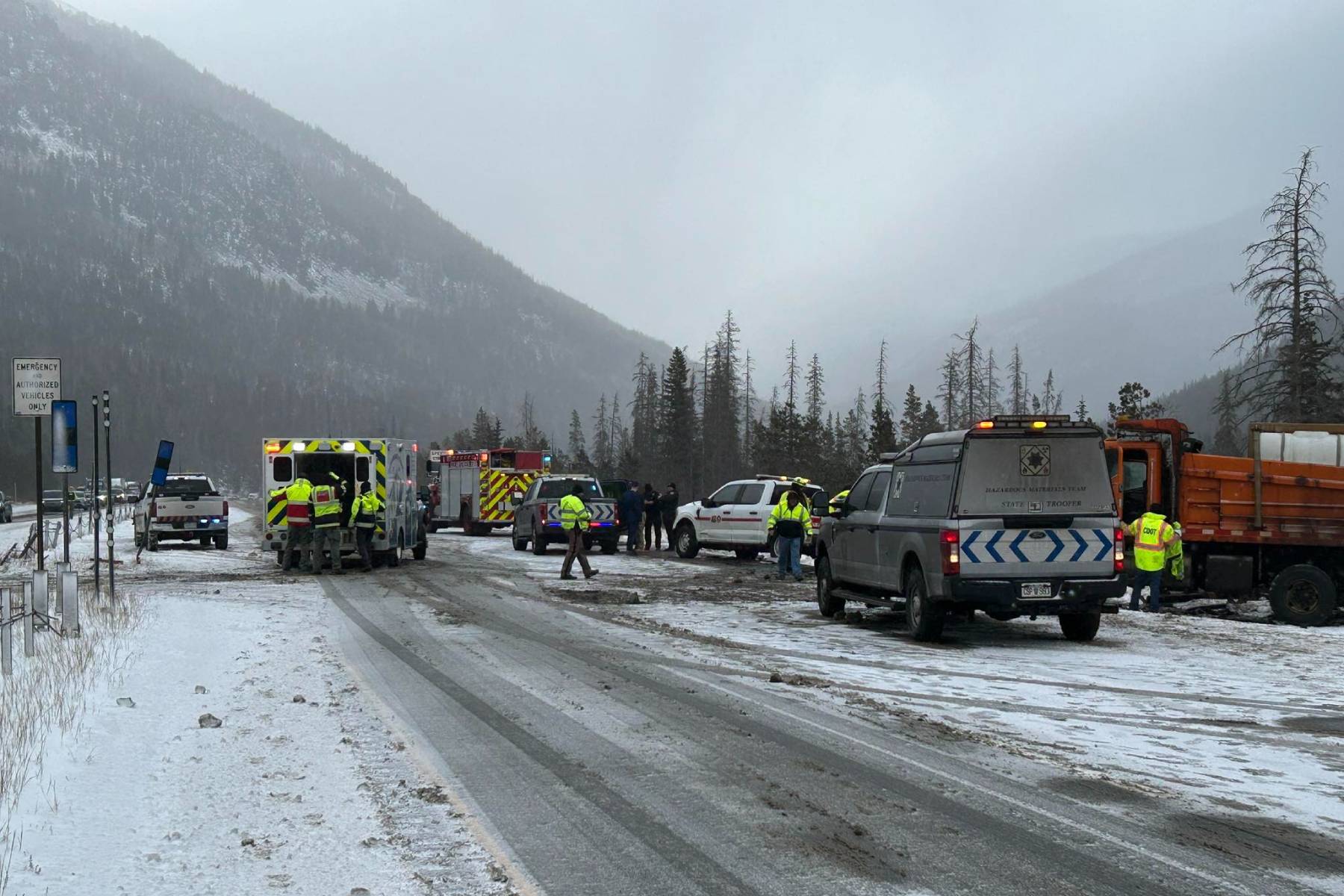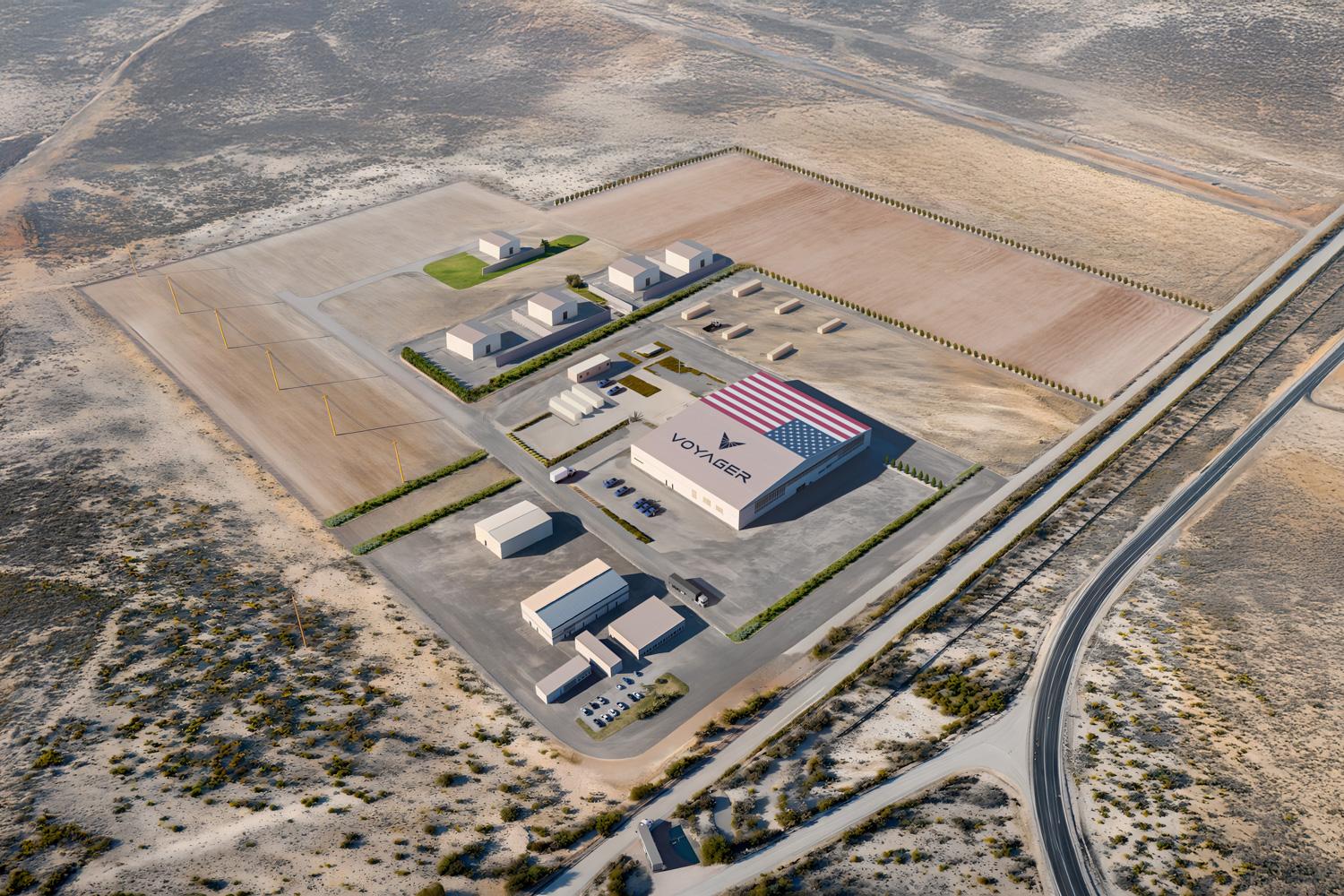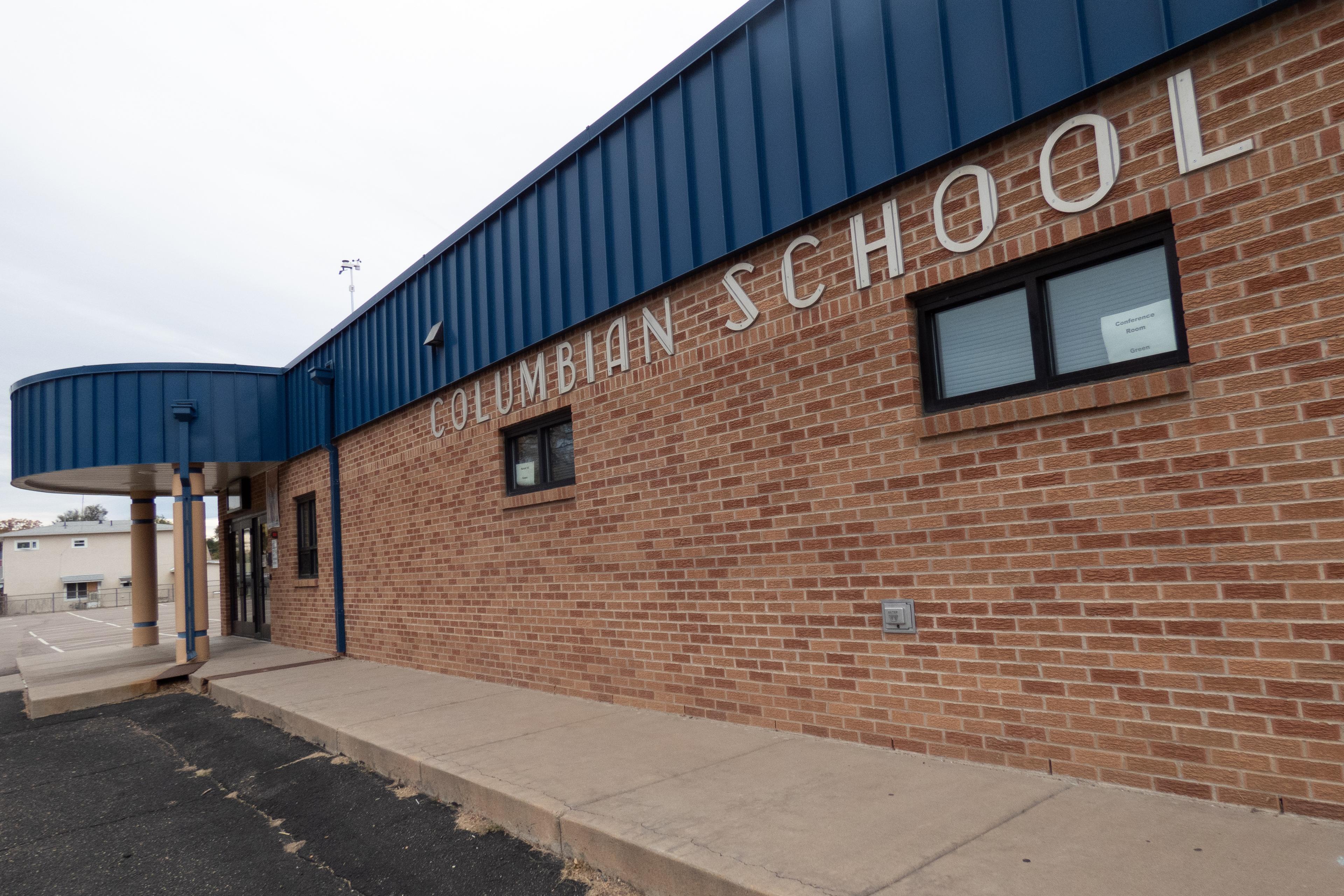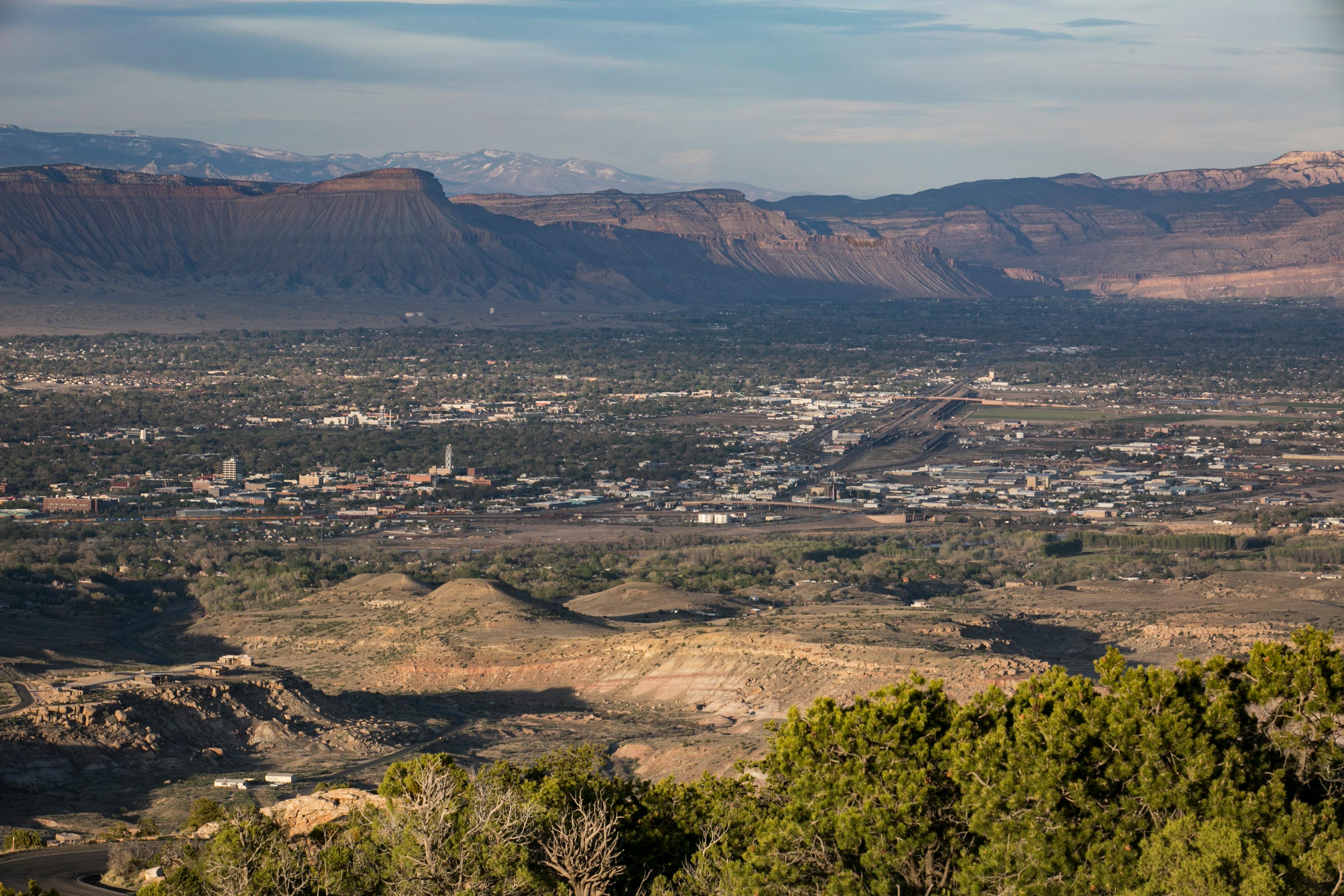

Now that several members of Colorado’s congressional delegation have confirmed that the federal Bureau of Land Management will move west from Washington D.C., there’s one big question left for the oft-talked about relocation.
Which community will snag the BLM?
One Western Slope town has been talking itself up, trying to make sure it’s the belle of the ball. At the annual Outdoor Retailer summer trade show, another recent big get for the state of Colorado, you’ll find all the big names: North Face, Salomon, Thermarest, Pelican, Keen, Mountain Hardware — and the city of Grand Junction.
“The most common question is why are you guys here,” said Robin Brown from the Grand Junction Economic Partnership.
They’re here not only to recruit businesses, but to sell the city. Grand Junction may be one of the smallest locations in contention to land the BLM, but Brown said they’re competitive with highway infrastructure, high speed internet access, and more. She doesn’t see the idea as pie in the sky or a wistful spoken out loud “we wish we could have the BLM headquarters.” For her, Junction “makes perfect sense.”
- Rep. Tipton On Junction: “Let’s actually move it into the areas where the BLM land is present.”
The way she puts it, the Western Slope city is hours closer to actual BLM lands than the Front Range. The city is also building economic momentum. Between the redevelopment of the riverfront and the relocation of Front Range outdoor businesses, like Timberleaf Teardrop Trailers or vehicle rack company Rocky Mounts, things are looking up economically.
The potential to bring in an influential federal agency with nearly 500 employees is “probably our number one prospect at this point,” Brown said.

Gov. John Hickenlooper, Brown and other Grand Junction representatives have met with top brass at the Department of the Interior about a possible move. Brown sees Grand Junction’s quality of life and affordability as very important to Interior Secretary Ryan Zinke.
“His priority is wherever the BLM headquarters goes, he wants his employees to be able to buy a home and immerse themselves in the community,” she said.
And while Grand Junction’s airport may not have any direct flights to Washington, D.C., Brown says they can work on that. Boosters from another Western city realize their flight status could also be a problem.
Boise, Idaho doesn’t have direct flights the eastern seaboard. The airport aside, Boise has been making a lot of top 10 lists lately for work/life balance and a thriving local economy. Idaho is also about 60 percent public land, nearly twice Colorado’s percentage of public land.
Charity Nelson, the director of economic development at the Boise Valley Economic Partnership, has a lot of experience trying to bring new employers to her city and she said each situation is different.
Some companies want a bigger city, others want to be a big fish in a smaller pond, and all wonder about the technical expertise of the local population.
“Every company has things that are more critical for them and so they’re going to weigh all of the criteria slightly differently and sometimes that plays in your favor and sometimes it doesn’t,” Nelson said.
Unlike Grand Junction, Boise has not yet been approached nor made any presentations to the Interior. But there are people in Salt Lake City at work on a lure for the BLM.
“If they were completely objective, it would be easy to answer that question,” laughs Val Hale, the executive director of the Utah Governor’s Office of Economic Development.
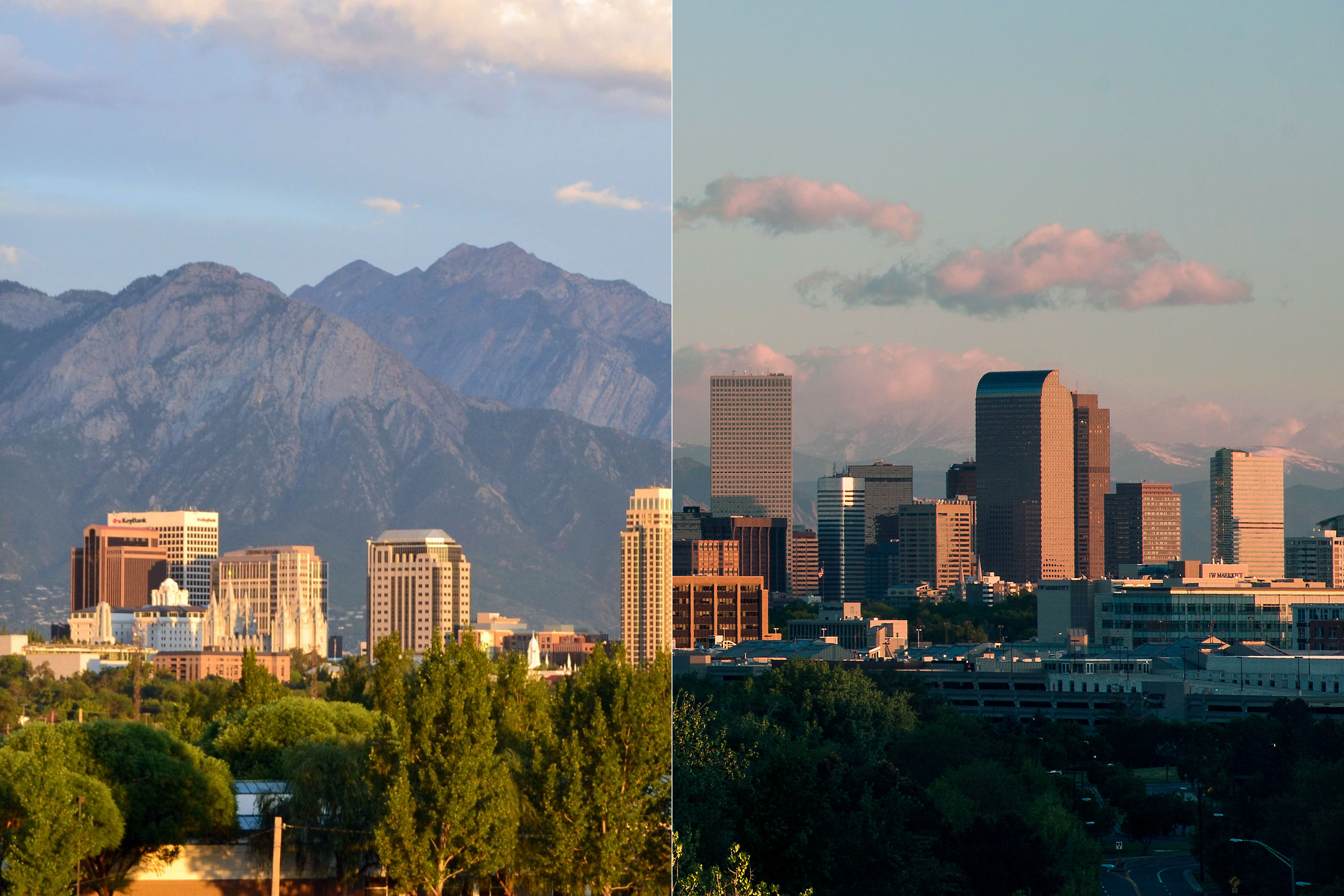
He said Salt Lake City is one of the largest contenders and clearly the best. The state does have a slightly higher public land percentage than even Idaho. Great quality of life, high speed internet access and all the rest.
And unlike either Grand Junction or Boise, there’s a big airport. It already has plenty of direct flights to Washington D.C. and Hale also pointed out that Salt Lake International is undergoing a $3.6 billion expansion.
As confident as Hale is about what he sees as the objective advantages of Salt Lake City, with decisions like this, subjectivity is bound to come into play.
“You know, somebody likes a particular area or state,” he said.
Hale doesn’t know the key players in the Interior who will have the most sway with Secretary Ryan Zinke or President Donald Trump.
There’s also a matter of Colorado’s capitol. Denver’s name is always mentioned as a possible contender. The Mile High City has grown by leaps and bounds over the last few years and is host to the fifth busiest airport in the country. All the usual measures about quality of life and outdoor recreation apply. Like Salt Lake, Denver International Airport is busy with expansion and remodel work.
However, Grand Junction has been specifically mentioned by Republicans Sen. Corey Gardner and Rep. Scott Tipton as a preferred location. The two sponsored the Bureau of Land Management Headquarters Relocation Act in 2017 that would authorize moving the headquarters to one of 12 western states. Regardless of whether Grand Junction is selected, for Robin Brown it’s an honor to be nominated.
“To be the name that pops up at the top of the BLM conversation is wonderful for us,” she said.
Members of Colorado’s congressional delegation say the BLM will assess the location of the new headquarters over the next 6-8 months.
CPR's Jim Hill contributed to this report.

